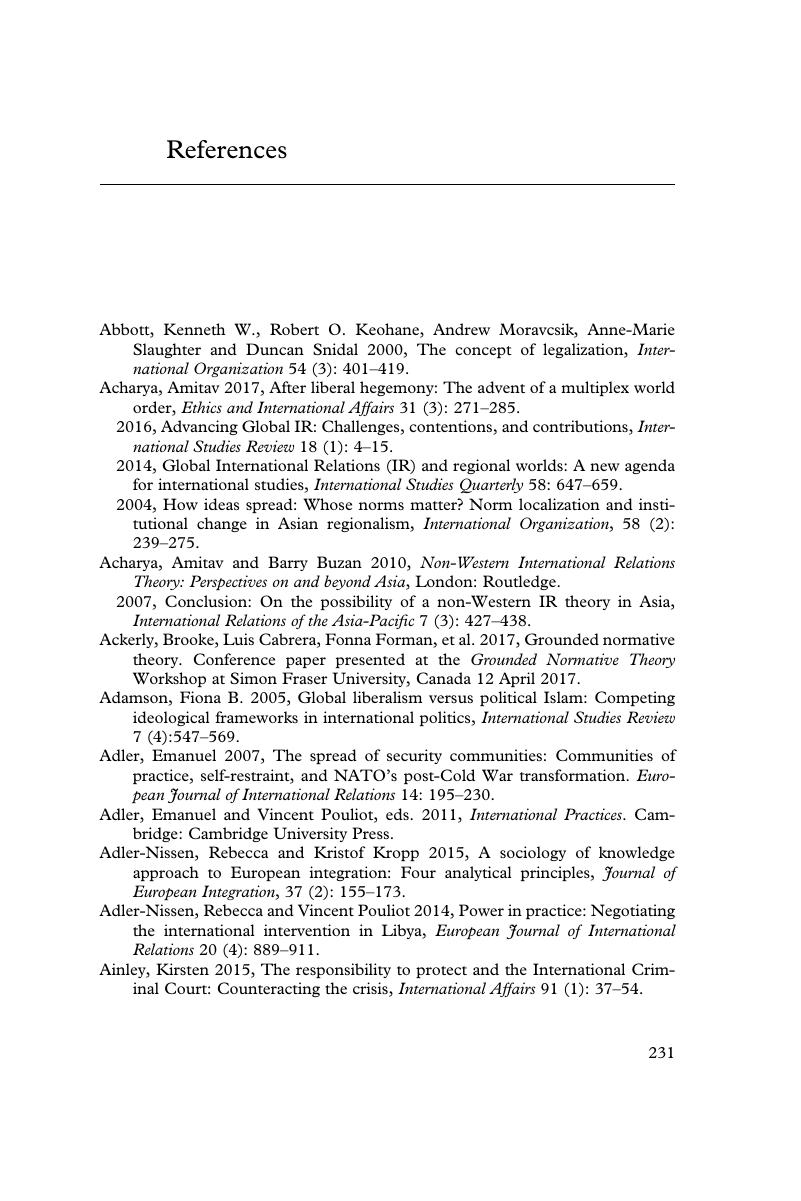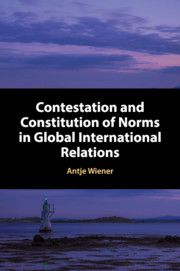Book contents
- Contestation and Constitution of Norms in Global International Relations
- Contestation and Constitution of Norms in Global International Relations
- Copyright page
- Dedication
- Contents
- Figures and Tables
- Preface
- 1 Whose Practices Count?
- 2 Norms Lie in the Practice
- 3 Normative Structures and Rules of Engagement
- 4 Transformative Power: Framing the Co-Constitution of Normative Change
- 5 Making Fundamental Rights a Global Issue: The Kadi Case and Contested ‘Moral Responsibility’ in Global Society
- 6 Bringing on the Torture Convention: The Rumsfeld Case and Contested ‘Universal Jurisdiction’
- 7 Putting Violence against Women during Wartime onto the Global Agenda: Resolution 1325 and the Contested ‘Culture of Impunity’
- 8 A Voice through the Practice
- References
- Index
- References
References
Published online by Cambridge University Press: 04 August 2018
- Contestation and Constitution of Norms in Global International Relations
- Contestation and Constitution of Norms in Global International Relations
- Copyright page
- Dedication
- Contents
- Figures and Tables
- Preface
- 1 Whose Practices Count?
- 2 Norms Lie in the Practice
- 3 Normative Structures and Rules of Engagement
- 4 Transformative Power: Framing the Co-Constitution of Normative Change
- 5 Making Fundamental Rights a Global Issue: The Kadi Case and Contested ‘Moral Responsibility’ in Global Society
- 6 Bringing on the Torture Convention: The Rumsfeld Case and Contested ‘Universal Jurisdiction’
- 7 Putting Violence against Women during Wartime onto the Global Agenda: Resolution 1325 and the Contested ‘Culture of Impunity’
- 8 A Voice through the Practice
- References
- Index
- References
Summary

- Type
- Chapter
- Information
- Publisher: Cambridge University PressPrint publication year: 2018



